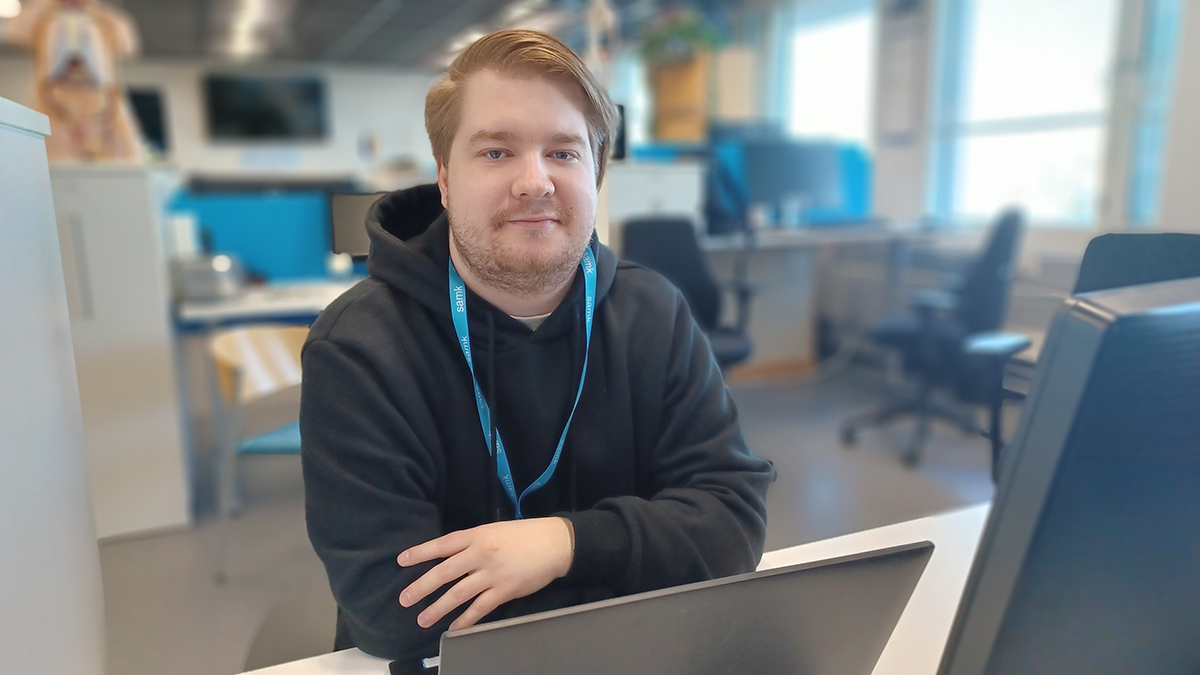
There were plenty of summer job opportunities in various fields. I ended up working for a project at SAMK. The goal of the LaivaDigiLab project is to develop of pre-testing concept of digital systems for shipbuilding. Alongside the concrete tasks, I believe the journey until end-August will be interesting, and I will learn a lot of new things.
My name is Sami Alatörmä, a 24-year-old international trade student at Satakunta University of Applied Sciences. This summer, I am working at the Maritime Logistics Research Center in the LaivaDigiLab project, which is funded by the European Regional Development Fund and SAMK. I am involved in finalizing the project in the role of a project researcher, together with an experienced team.
The main task of my job is to create a visible and creative ecosystem model of the supplier network related to shipbuilding and digital systems. This helps the field of stakeholders to grasp the big picture and it will also enable equipment suppliers to see the connections between their operations and other factors.
The benefit of these models is to increase knowledge and understanding beyond one’s own work: a change in one system or supplier’s product can have implications beyond just the immediate surroundings. This visibility of system dependencies and, on the other hand, supplier relationships can aid in the maintenance phase of the ship’s life cycle, but it can also be a useful tool for pre-testing.
I will also help developing a mind-map for pre-testing in shipbuilding. The mind-map will house the different stages of shipbuilding and the associated best practices.
What is LaivaDigiLab?
To carry out the ecosystem modeling for suppliersd, I have familiarized myself with the LaivaDigiLab project. Its goal is to support the pre-testing process of digital systems in shipbuilding in Satakunta. The project started with analysing the current state of digital systems on ships. In response to the challenges of coordinating digital systems and proactively solving problems, the project is piloting the concept of pre-testing. It also aligns with the green transition and supports energy efficiency goals.
Based on my current understanding, potential risks to business can be prevented by developing pre-testing methods. The results of the project – when taken into practice – can save time and money.
The project does not create a physical testing laboratory but tries to create conditions and a concept that proactively addresses changing factors. The success of the project is important for Rauma and the maritime cluster in Satakunta. Drawing on my educational background, I feel that the project’s results could be presented abroad, which would enhance the reputation of the entire Finnish maritime industry. While the maritime industry and shipbuilding in Rauma may be small players globally, uniqueness and pioneering in many aspects are strengths on the global scale. The benefits of the pre-testing concept could serve as an example for other countries in the green transition.
Boosting my thesis with summer work
I have only been working since the beginning of May, getting to know the project, the project world, and SAMK’s way of working. The project world seems complex and challenging, but I trust that as the work progresses, the pieces will come together, and after the summer, I will have a better grasp of many things. My colleagues are experienced, and there is support available for learning. The work ethic is also high: we work hard but with a relaxed approach.
It is important for me to gain an understanding of the LaivaDigiLab project. However, the most important aspects that need to succeed are mapping and visualizing the supplier networks as a comprehensive entity as well as pre-testing concept. Hopefully, I will also gain inspiration for my thesis, which I am working on with the support of experts from SAMK’s Maritime Logistics Research Center. The summer is going to be busy but motivating and even significant for my career: I will get to see how projects are brought to completion and what kind of skills the current job market requires.
Text: Sami Alatörmä, a summer employee and a 3rd-year student at Satakunta University of Applied Sciences.
The article was written as part of ÄlyMeri project which was funded by European Regional Development Fund (ERDF) and SAMK.